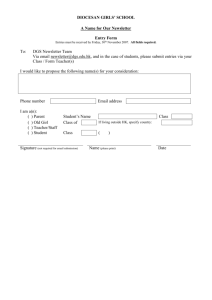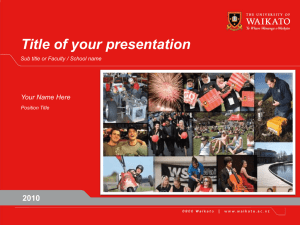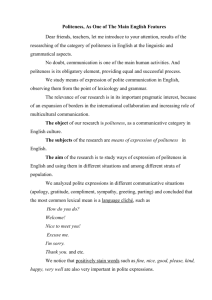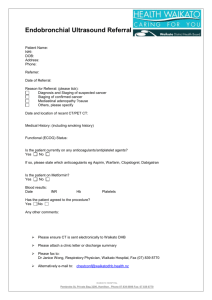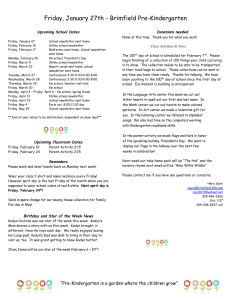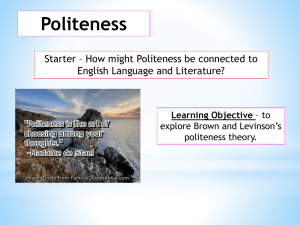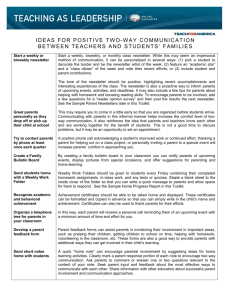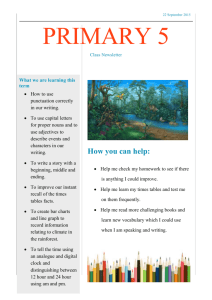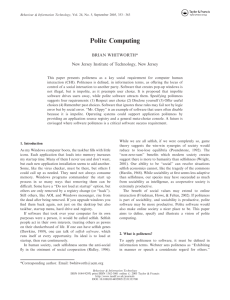GRAMMAR GOODIES - English Language Partners
advertisement
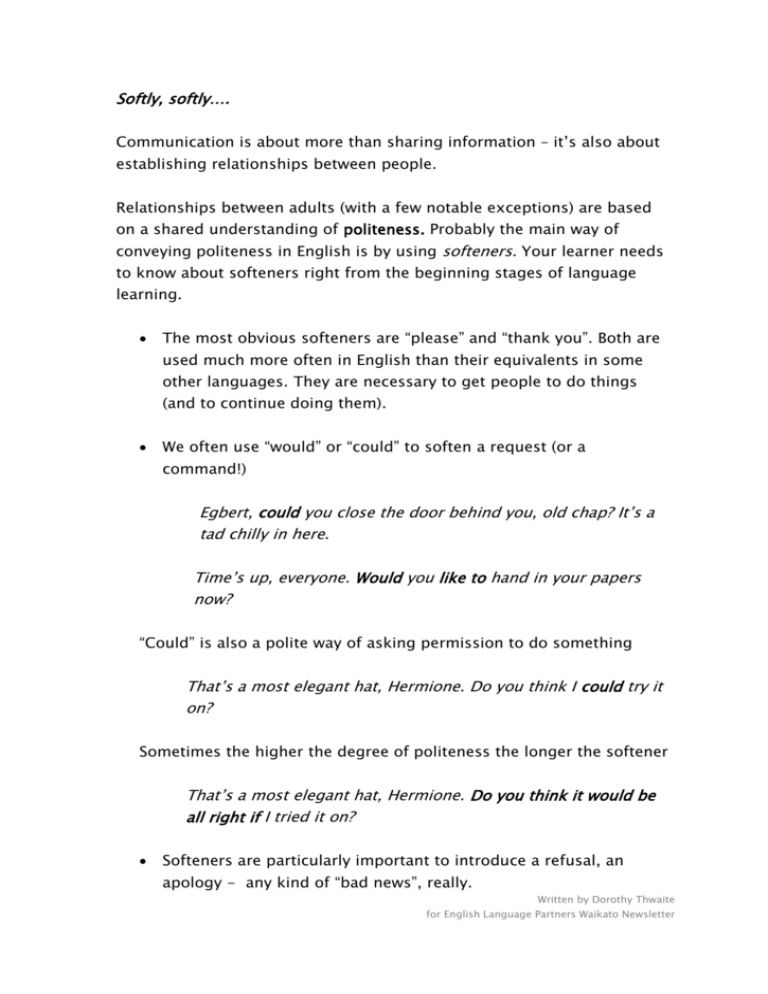
Softly, softly…. Communication is about more than sharing information – it’s also about establishing relationships between people. Relationships between adults (with a few notable exceptions) are based on a shared understanding of politeness. Probably the main way of conveying politeness in English is by using softeners. Your learner needs to know about softeners right from the beginning stages of language learning. The most obvious softeners are “please” and “thank you”. Both are used much more often in English than their equivalents in some other languages. They are necessary to get people to do things (and to continue doing them). We often use “would” or “could” to soften a request (or a command!) Egbert, could you close the door behind you, old chap? It’s a tad chilly in here. Time’s up, everyone. Would you like to hand in your papers now? “Could” is also a polite way of asking permission to do something That’s a most elegant hat, Hermione. Do you think I could try it on? Sometimes the higher the degree of politeness the longer the softener That’s a most elegant hat, Hermione. Do you think it would be all right if I tried it on? Softeners are particularly important to introduce a refusal, an apology - any kind of “bad news”, really. Written by Dorothy Thwaite for English Language Partners Waikato Newsletter So sorry I can’t come to the crochet circle on Wednesday, Mrs Pumpernickel. I’m afraid I have to shampoo the poodle. More subtle types of softeners-for-politeness: Words to establish shared ground between speaker and listener – used to make contact. Tag questions are important here: Lovely day, isn’t it? Yeah, too right. Good game, eh? [Note that polite doesn’t necessarily mean formal. Call Elaine if you want to discuss this.] “Minimising” words, used to ask a favour: I just wondered if you’d finished with that book on tadpoles, Have you got a minute, Letitia? I just wondered if you had time to help me with the newsletter… “Qualifying” words, used to soften advice or criticism: This might be just a bit too pink, Clementine. I’m pretty sure you said the 13th, Rupert. Finally, sometimes we say things that are so indirect they aren’t strictly accurate -just to be polite: You must be tired. We’ll be off now. (I’m tired. I want to be off now.) Well, I mustn’t keep you any longer. (I don’t want to talk to you any longer) Written by Dorothy Thwaite for English Language Partners Waikato Newsletter I’m sorry, I haven’t any change. (I don’t want to buy these raffle tickets) I’ll give that some thought. (No) Many of these become the formulaic language chunks that keep social contact going. We’d be lost without them. Help your learner to practise softeners in English– and learn how the wheels of social relationships are oiled in your learner’s language! Written by Dorothy Thwaite for English Language Partners Waikato Newsletter
